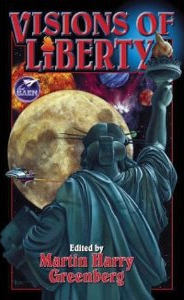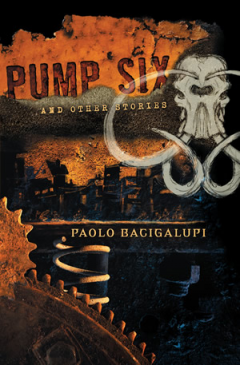
I’m rather late with this sad news, but I just read the obituary in the August digital issue of Locus Magazine a couple of days ago. Martin H. Greenberg died on June 25, 2011 after a long struggle with cancer. A political scientist like myself, Greenberg had a long, prolific, and influential career in genre fiction as an anthologist. He edited and co-edited more short fiction anthologies than I can probably read in a lifetime.

Greenberg’s death is particularly worth noting for libertarians because of two of his anthologies, co-edited with Mark Tier, that won the Prometheus Special Award in 2oo5: Give Me Liberty and Visions of Liberty, which have been collected into an omnibus anthology titled Freedom! The anthologies are stacked with top talent, including short stories by Vernor Vinge, Murray Leinster, A.E. van Vogt, Frank Herbert, Eric Frank Russell, Robert J. Sawyer, Mike Resnick and Tobias S. Buckell, Brad Linaweaver, Michael A. Stackpole, Jack Williamson, and more.
The back cover description of Freedom! reads in part:
As Thomas Jefferson put it, “That government is best which governs least.” And, as Will Rogers wryly quipped, “We’re lucky we don’t get the government we pay for!” In the future, eternal vigilance against our own government will be even more important than vigilance against hostile outsiders.
This stellar roster of writers consider how a truly free society could operate, how the Soviet Union might have fallen apart even earlier because of an apparently harmless device, how a low-tech society might throw off the influence of more “advanced” intruders, how the right to own weapons is fundamental to freedom, and more.
In the future, freedom may be even more threatened than in our present — and this volume suggests original and unusual ways of defending it.
I’m very much interested in publishing a review of Freedom!, or reviews of Give Me Liberty and Visions of Liberty, although I will review Freedom! myself eventually if I don’t receive any submissions.










